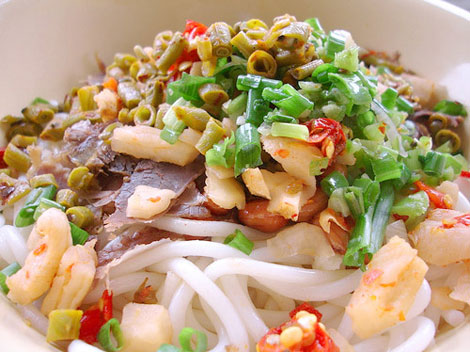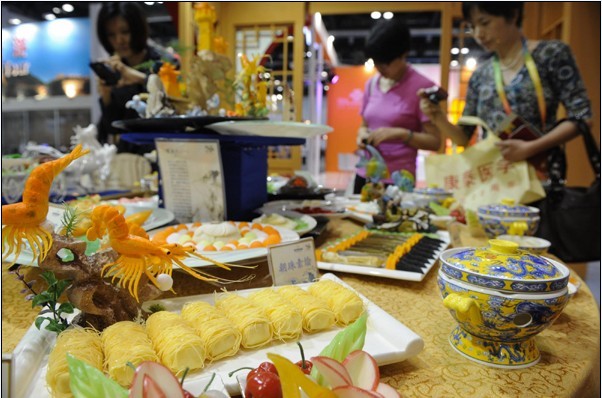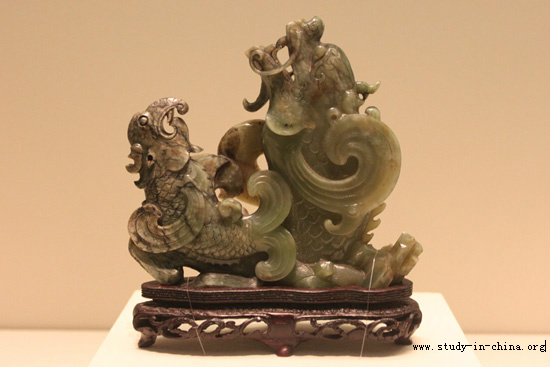| Home > China Feature |
Guilin Rice Noodle

If you ask a Guilin local what is his favorite food in Guilin, he may tell you "Guilin Rice Noodle". This food can be taken as the fourth treasure in Guilin. Some one tells me that a foreigner has stayed in Guilin for couple of months. The first sentence of Guilin dialect he learnt to say is "er liang mi fen" which means "I want to have a bowl of Guilin Rice Noodle".
The History
Guilin Rice Noodles were first invented in Qin Dynasty (221 B.C.). Till now, it has a history more than 2,200 years. During the Qin Shihuang (a Qin Emperor) period, some soldiers were sent to battlefields in the south to integrate China. Soldiers from northern part were not used to eat rice meals. Aimed to deal with this problem, the General found a way to make the rice into something delicious. And then this dish, the original Guilin Rice Noodle, became very popular among the Guilin and Yangshuo restaurants. After developing for thousands of years, this traditional Guilin food makes it become renowned throughout China.
How to eat
Guilin Rice Noodles can be either round or flat. The round one is more suitable to eat without soup while the flat one can be tasted together with the delicious broth. Because it is made of rice, the color of this food is white.
Beside the rice noodle, there are various materials putting into this food, voluptuous gravy, fried peanuts or soybeans, scallions and thin slides of different kinds of meat such as beef, horse meat, and pork. You can also add some spice and chili in the rice noodles.
Where to eat
It is an easy question to answer when you walk on the Guilin streets. The old-fashioned little shops that run along the streets are every where. These are the places where you can eat authentic Guilin rice noodle at an extremely economic price.
Look around the shop inside, you may find that even those fashionable young ladies and handsome young guys who wear business suits are sitting down and eat this food in spite of their inelegance.
Art
 more
moreChina Beijing International Diet ...
Recently, The hit CCTV documentary, A Bite of China, shown at 10:40 ...

Exhibition of Ancient Chinese Jad...
At least 8,000 years ago, Chinese ancestors discovered a beautiful...

Longmen Grottoes
The Longmen Grottoes, located near Luoyang, Henan Province, are a tr...

Custom
 more
moreWeb Dictionary
Martial Arts
Tai Chi Master Class Held in Moscow
MOSCOW, June 15, 2016 (Xinhua) -- Students learn from Shaolin ...
Celebriting 70 years' efforts in restoring Mogao...
Work is being carried out at the restoration site of cave No 98 a...
Hong Kong Children's Symphony performs in Seattle
Under the theme of Tribute to the Golden Age, a concert featuring a ...





 print
print  email
email  Favorite
Favorite  Transtlate
Transtlate 








